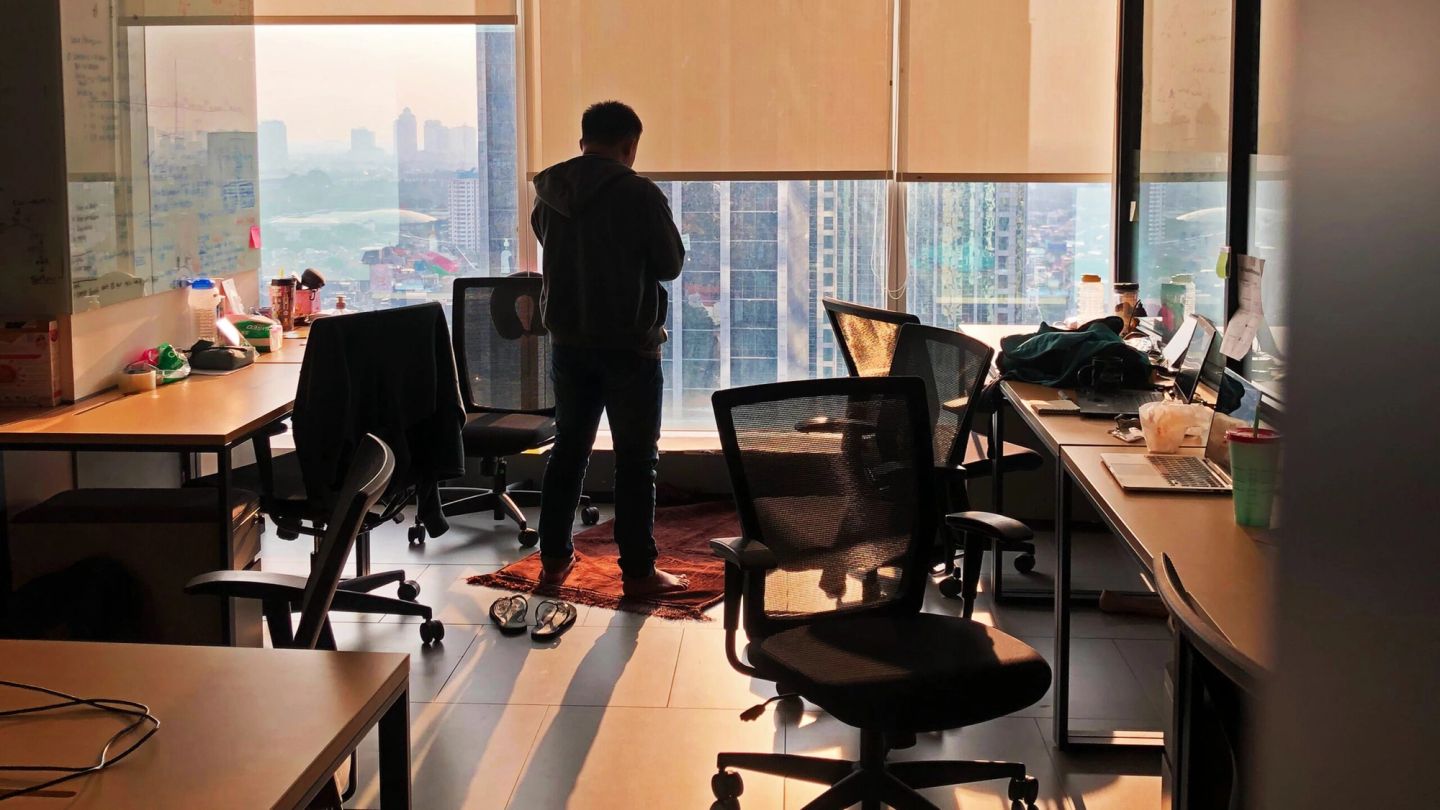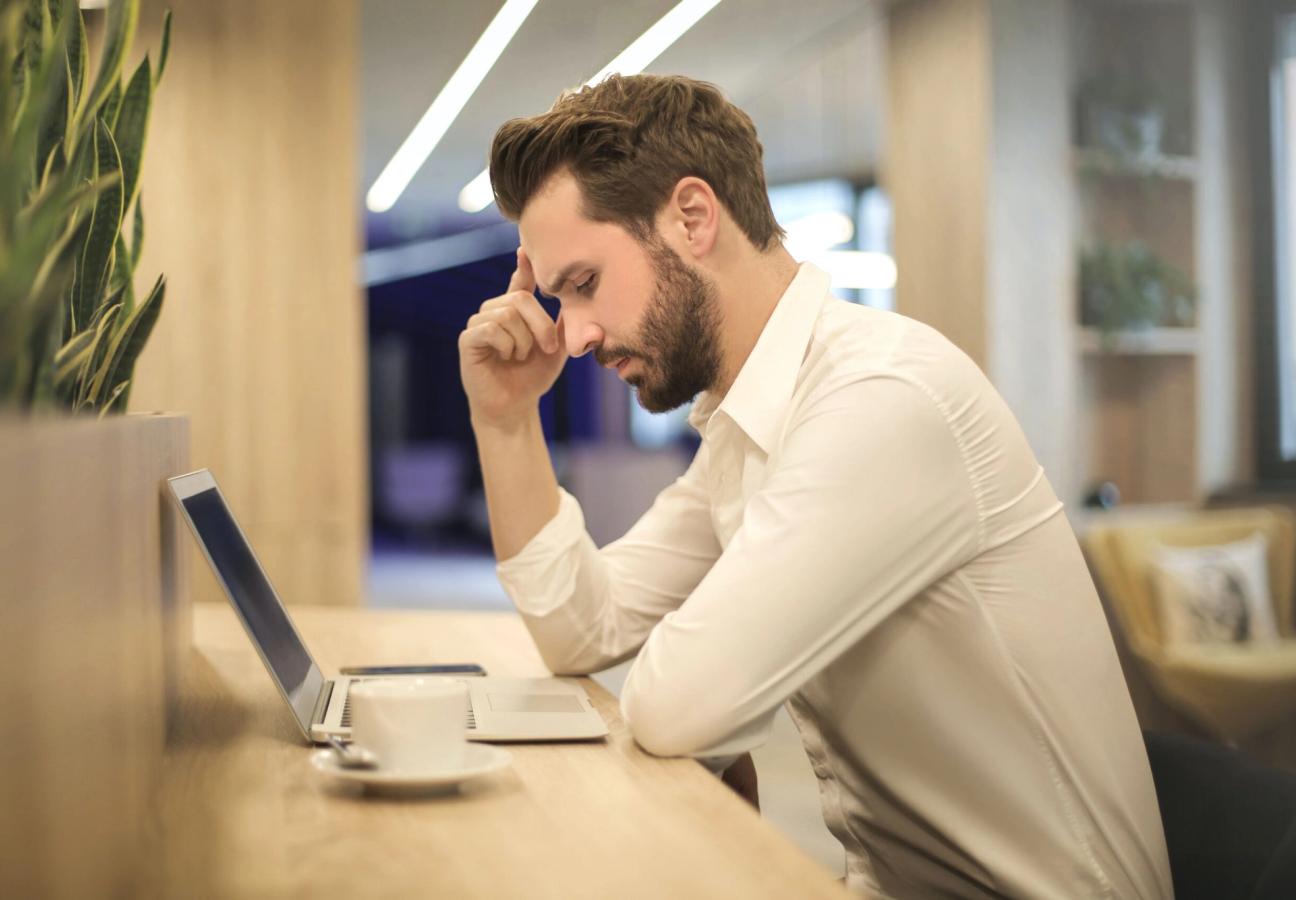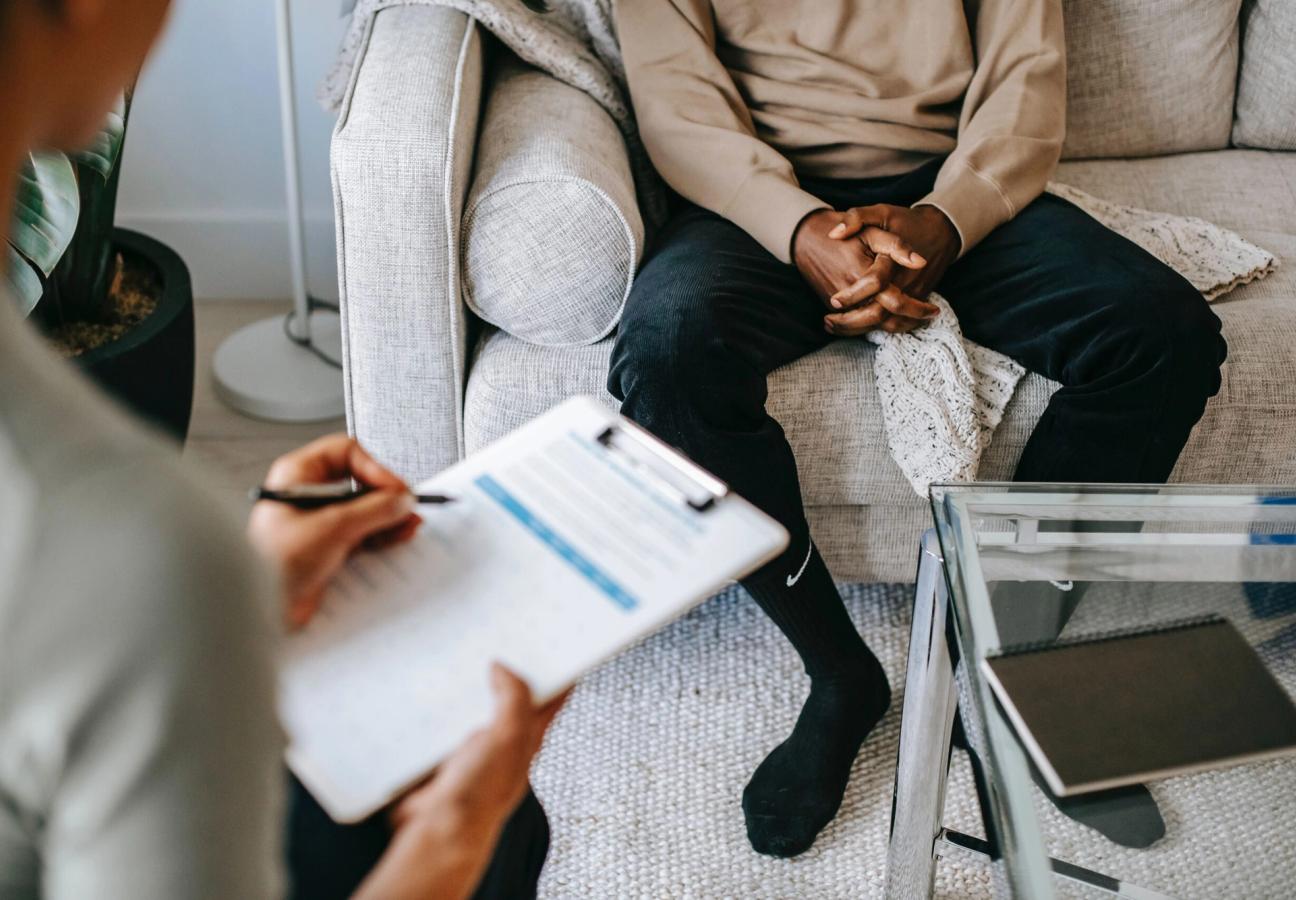

Words: Izzie Price
The world is reopening, and that’s a wonderful thing. Pubs are flinging open their doors and welcoming the thirsty hordes back to the bar; theatres have lifted curtains once again; festivals are cranking up the volume across the country, and holidays are once more being firmly set in diaries.
But the post-lockdown world doesn’t come without its challenges. And, for many, one such challenge can be found in returning to the office. Working from home has affected us all differently, but many people preferred their home office to the grind of daily commuting.
So, as offices begin to welcome employees back through the revolving glass doors, it’s perfectly normal to feel a growing, gnawing anxiety. That’s why we’ve sought out some advice from the experts at well-being platform Augmentive on just how to cope with this momentous lifestyle shift.
Where could this anxiety stem from?

“Changing behaviour and habits requires a lot of energy,” explains co-founder and CEO Kit Norman. “Many people have just formed routines, and are reluctant to change them again; particularly with uncertainty as to whether there will be another [Covid] wave this winter. There may also be concerns about exposing vulnerable loved ones to illness.”
“We’re creatures of routine and habit, and our recent routine of being at home for so long is what we have done to ‘survive’,” agrees Constance Knox, a therapist at Augmentive. “It’s what we’re used to, and has kept us safe from the [ongoing] threat of Covid: these are the messages we have been told and [which] our brains have listened to.
“So when we break this routine again and are pushed back into the outside world, the commute and the busyness of an office, this could make people feel unsafe and therefore anxious. We’re being asked to go back into what was once considered an unsafe environment.”
"The pandemic has caused an existential trauma..."
Monika Gos, a Clinical and Counselling Psychologist at Augmentive, agrees that feeling anxious about returning to the office is “natural and expected”.
“The pandemic has caused an existential trauma,” she points out, frankly. “Nothing is certain now, and there is a real threat that we had to collectively face. Adapting to traumatic situations is very challenging; our nervous system might be confused, as it doesn’t know how to adapt, or just may lack flexibility. Despite things feeling less threatening as life slowly comes back to “normal”, we have not yet come out of [the pandemic]; we’re still responding to trauma.”
What manifestation might this anxiety take?

Norman is clear on the external triggers that might induce anxiety. “There is a level of hypersensitivity to the behaviour of others in the office,” he points out. “People vary in the degree to which they take precautions; and this can cause friction within the workplace. It is important to be clear about company policy and encourage empathy from all.”
He’s clear, too, on how a return to the office could leave fewer hours in the day to look after the self. “Employees are also starting to spend time commuting again,” he explains. “[Plus,] in competitive environments employees can drive one another to spend longer hours in the office. This means less time for self-care, which could reduce energy and overall wellbeing.”
"Sweaty palms, racing heart, shallow breathing..."
In terms of the physiological effects of anxiety, Knox is elucidative on how anxiety can manifest in the body. “Anxiety affects people in different ways: some might feel the physical effects and others might have the racing thoughts,” she explains.
“It depends on the person; but some manifestations include catastrophising thoughts, like ‘I am going to lose my job if I can’t make it into the office’; physical panic symptoms at work, like sweaty palms, racing heart, lightheadedness, nausea and shallow breathing; or an anxiety attack, [which involves] feelings of immense fear, as if something awful is going to happen to you.”
Angie Wong is a psychosynthesis practitioner at Augmentive. “When not able to manage the anxiety, people might not be able to be themselves, to perform at work or to interact with other people the way they would like to be,” she says.
“Some people might overthink and try to overplan everything, to make themselves feel like they have more control. [But] we’re not Dr Strange, who could calculate all the possibilities: so we might let our anxiety control our actions or even be paralysed to do anything.”
How can we cope with these feelings of anxiety?

“Awareness is key,” says Norman, simply. “It’s important to assess how you’re feeling regularly, and take care of yourself when and where needed. Eating well and exercising regularly can establish a positive pattern of behaviour and start to get you into your flow. Practicing mindfulness, meditation and breathwork techniques can also help you to cope with stress and anxiety.”
Wong agrees that awareness is always of paramount importance, when it comes to trying to mitigate feelings of anxiety. “Don’t run away from the anxiety, or to tell yourself not to be anxious,” she maintains. “Anxiety is a normal [bodily] reaction, and it is there for many good reasons: for example, to prepare ourselves and to be alert and to work hard enough.”
"Don't run away from the anxiety..."
And Gos agrees that it’s vital not to run away from the feeling, and to accept it, instead. “When we understand that our anxiety is a natural reaction to [a] situation which is beyond our control; when we accept it and are kind to ‘it’, [that can be] enough for [the anxiety] to soften a bit,” she explains.
“Anxiety will not survive in two environments. There is no oxygen for anxiety when we feel grounded and connected. You’ll be able to feel more grounded by breathing a bit slower and deeper than usual. We tend to breathe too fast and shallow, which [can] cause us to feel anxious. [Practice] this slower, deeper breathing; add a focused eye position and observe your internal process as it shifts and moves.”
Norman is keen to point out, though, that managing anxiety is very much an individual process. “Mental health is incredibly personal. We’re all different and our priorities change. Some people may need help exploring professional issues while others may need support on personal matters,” he explains.
How can employers support employees who are nervous about returning to the office?

“It’s often said that change starts at the top,” Norman points out. “As companies ask their employees to change their routines, it’s important that managers lead by example. This involves proactively setting the standards in terms of when and where to work; but also championing resources that are available to support the transition.”
“It’s [also] important that taking steps to improve mental health is perceived positively,” he continues. “Engaging with support is building strength, not displaying weakness.”
Knox, too, feels that this engagement is of vital importance, as people return to the office, maintaining that “having open conversations about [mental health], and normalising it before employees return and as they return, [together with] allowing employees not to feel shame around their feelings of anxiety” is all paramount; and she adds that employers should “ask employees what would make it an easier and more positive experience for them,” and that they should “listen to what the employees need.”
"Engaging with support is building strength..."
Gos agrees. “Mental health at work became a hot topic before the pandemic,” she shrewdly points out. “Now there is an opportunity to continue and implement this groundwork [at a time when it’s] needed the most.”
She’s right. Mental health has certainly been a hot topic; and, regrettably, too many companies engage in mere lip service rather than proactive engagement and support. Following the advice listed by Norman and Knox can help increase proactivity when it comes to mental health at work; together with specific recommendations suggested by Gos.
“A consultation and guidance of a psychologist might be helpful,” she suggests. “Strategies focused on an individual employee’s mental health in conjunction with some team support can have some great effects. Creating an environment that is safe and supportive — which can facilitate connection — will be crucial.”
If one thing’s for sure, it’s that these safe and supportive environments are of paramount importance, as people return to physical workspaces: and if two things are for sure, it’s that anxiety centred on said return is perfectly normal. You’re not alone.
Looking to continue focusing on your wellbeing? James Yates shares his 6 top post-holiday exercises…
Become a Gentleman’s Journal member. Find out more here.


